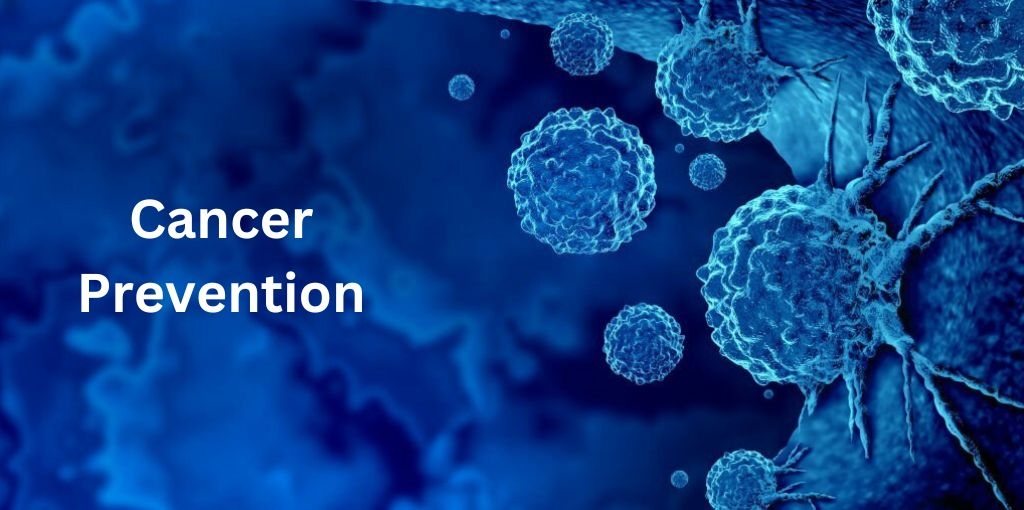Cancer affects millions of people worldwide, but many forms of cancer can be prevented with simple, proactive lifestyle adjustments. While factors like genetics and age play a role, numerous environmental and behavioral changes can help lower cancer risk significantly. By adopting healthier habits related to diet, exercise, and mental well-being, you can effectively reduce your susceptibility to this disease.
In this guide, we’ll explore the most effective lifestyle changes you can make to lower your cancer risk, including dietary improvements, physical activity, reducing toxic exposure, and prioritizing screenings. Implementing these steps can help build a foundation for a longer, healthier life.
1. Eat a Balanced, Cancer-Fighting Diet
One of the most powerful steps to prevent cancer is improving your diet. Certain foods contain antioxidants, vitamins, and minerals that reduce inflammation, boost immune function, and may inhibit cancer cell growth.

- Focus on Fruits and Vegetables: Colorful fruits and vegetables like berries, leafy greens, carrots, and bell peppers are rich in antioxidants, which protect cells from damage. Aim to include at least five servings of fresh produce daily.
- Add Whole Grains: Whole grains like brown rice, oats, and quinoa provide fiber, which aids digestion and lowers the risk of colorectal cancer. Fiber also helps maintain a healthy weight, which further reduces cancer risk.
- Limit Processed and Red Meat: Studies link high consumption of red and processed meats, such as bacon and sausage, to a higher risk of colorectal cancer. Consider substituting these with lean proteins like poultry, fish, or plant-based options.
- Choose Healthy Fats: Incorporate healthy fats like omega-3s found in salmon, walnuts, and flaxseeds, which have anti-inflammatory properties. Avoid trans fats, often found in processed foods, which may increase cancer risk.
A diet rich in plant-based foods, fiber, and healthy fats provides essential nutrients that support your body’s defenses against cancer.
2. Stay Physically Active to Reduce Cancer Risk

Regular physical activity is crucial for overall health and has been shown to reduce the risk of several types of cancer, including breast, colon, and lung cancer. Exercise helps maintain a healthy weight, reduce inflammation, and improve immune function.
- Engage in Regular Exercise: Aim for at least 150 minutes of moderate aerobic activity or 75 minutes of vigorous exercise each week. Walking, swimming, cycling, and strength training are excellent ways to stay active.
- Incorporate Strength Training: Strength exercises help maintain muscle mass and reduce body fat, a known risk factor for various cancers. Simple activities like lifting weights, bodyweight exercises, and resistance bands are effective.
- Stand and Move More: Prolonged sitting has been linked to an increased risk of cancer, particularly for those with sedentary jobs. Try standing up and moving around every hour, taking breaks to walk, or using a standing desk.
Physical activity not only reduces cancer risk but also supports cardiovascular health, mental well-being, and energy levels, leading to a healthier lifestyle overall.
3. Avoid Tobacco in All Forms
Tobacco use is the leading cause of preventable cancer deaths worldwide, especially in the case of lung, throat, mouth, and bladder cancers. Eliminating tobacco use, including smoking and smokeless tobacco products, is a major step toward cancer prevention.
- Quit Smoking: Whether you’ve smoked for a few months or several years, quitting can significantly lower your risk of cancer. Reach out for support through cessation programs, nicotine replacement therapies, or counseling.
- Avoid Secondhand Smoke: Secondhand smoke exposure also poses serious cancer risks. Avoid environments where you may be exposed to smoke, and educate family members and friends on the importance of a smoke-free home.
- Stay Away from Other Tobacco Products: Smokeless tobacco, such as chewing tobacco and snuff, is linked to oral and esophageal cancers. All forms of tobacco contain carcinogenic substances that can increase cancer risk.
Tobacco cessation is a powerful, life-changing step that drastically reduces the likelihood of developing multiple cancers.
4. Limit Alcohol Consumption
Excessive alcohol intake is associated with several cancers, including those of the mouth, liver, breast, and colon. Alcohol increases the levels of certain carcinogens in the body and interferes with nutrient absorption, contributing to cancer development.

- Stick to Moderate Drinking: Limit your alcohol intake to one drink per day for women and two for men. Abstaining from alcohol altogether provides the best protection, but if you choose to drink, moderation is key.
- Opt for Healthier Alternatives: Substitute alcoholic beverages with water, herbal tea, or sparkling water. Adding a slice of lemon or lime can make non-alcoholic options more enjoyable.
- Plan Alcohol-Free Days: Set certain days each week to skip alcohol altogether. These breaks allow your body to detox and reduce dependency, promoting overall health.
Reducing alcohol consumption can decrease cancer risk while improving liver health, mental clarity, and physical well-being.
5. Protect Your Skin from UV Radiation
Skin cancer is one of the most preventable types of cancer, often caused by exposure to ultraviolet (UV) radiation from the sun or tanning beds. Protecting your skin is essential for cancer prevention.
- Use Sunscreen Daily: Choose a broad-spectrum sunscreen with at least SPF 30, and apply it to all exposed skin, even on cloudy days. Reapply every two hours if you’re outdoors or after swimming.
- Wear Protective Clothing: Long-sleeved shirts, wide-brimmed hats, and sunglasses provide additional protection from harmful UV rays.
- Avoid Tanning Beds: Tanning beds emit UV radiation similar to the sun, increasing the risk of skin cancer. Embrace your natural skin tone or use self-tanning products if you want a bronzed look.
- Seek Shade During Peak Hours: The sun’s rays are strongest between 10 a.m. and 4 p.m. Limit direct sun exposure during these hours, or find shade to reduce the chance of sunburn.
Implementing these protective measures can reduce skin cancer risk and keep your skin healthy.
6. Get Regular Cancer Screenings
Regular cancer screenings are essential for early detection, which can significantly improve treatment success. Screenings can detect certain cancers before symptoms appear, allowing for timely intervention.
- Discuss Screening Options with Your Doctor: Talk to your healthcare provider about screenings based on your age, family history, and risk factors. Screenings for breast, colon, cervical, and prostate cancers are recommended for specific age groups.
- Stay Informed on Screening Guidelines: Different cancers have specific screening schedules. For instance, mammograms are advised for women over 40, while colonoscopies are recommended for individuals over 50.
- Follow Up on Abnormal Results: If a screening test shows any irregularities, follow up promptly with your doctor. Early intervention can make a crucial difference in treatment effectiveness.
Screenings empower you to take charge of your health, offering peace of mind and early treatment opportunities.
7. Reduce Stress and Prioritize Mental Health
:max_bytes(150000):strip_icc()/how-to-reduce-stress-5207327_FINAL-907db114a640431ba1e8ecbb9e81b77f.jpg)
Chronic stress may not directly cause cancer, but it can weaken the immune system, making the body more vulnerable to illness. Managing stress is essential for overall health, as well as cancer prevention.
- Practice Mindfulness and Relaxation Techniques: Techniques like meditation, deep breathing exercises, and yoga help reduce stress and promote relaxation. Just a few minutes each day can make a significant difference.
- Get Adequate Sleep: Aim for 7-8 hours of quality sleep per night to support immune function and allow the body to repair itself. Lack of sleep can disrupt hormonal balance and reduce the body’s resilience against diseases.
- Stay Connected: Social support from family and friends can provide emotional stability and reduce stress levels. Engaging in meaningful relationships can improve mental well-being and offer a buffer against stress.
Focusing on mental health is an essential part of a comprehensive cancer prevention plan, contributing to a stronger immune system and improved resilience.
8. Avoid Exposure to Carcinogens and Harmful Chemicals
Exposure to harmful chemicals, especially in workplaces or through environmental pollutants, can increase cancer risk. Minimizing exposure to these carcinogens is crucial for reducing health risks.
- Use Natural Cleaning Products: Many household cleaners contain chemicals linked to cancer. Opt for natural or organic products to limit exposure to harmful substances.
- Check Your Environment: Radon, a natural radioactive gas, is a carcinogen that can accumulate in homes. Testing for radon is essential, especially if you live in areas with high radon levels.
- Practice Safe Handling of Chemicals: If your job involves exposure to harmful substances, wear protective equipment and follow safety guidelines to reduce contact.
By taking steps to avoid exposure to carcinogens, you can create a safer environment for yourself and reduce cancer risk.
Conclusion: Small Changes, Big Impact on Cancer Prevention
Making simple yet effective lifestyle changes can play a significant role in lowering cancer risk. From adopting a balanced diet and staying active to protecting your skin and avoiding harmful substances, these steps contribute to a healthier, cancer-resistant life. While there are no guarantees in cancer prevention, these proactive measures strengthen the body’s natural defenses and empower individuals to take control of their well-being. By integrating these strategies into your daily routine, you’re not only reducing cancer risk but also fostering a healthier, happier life for the future. Don’t forget to share your thoughts or experiences in the comments below—we’d love to hear from you!

Leave a Reply